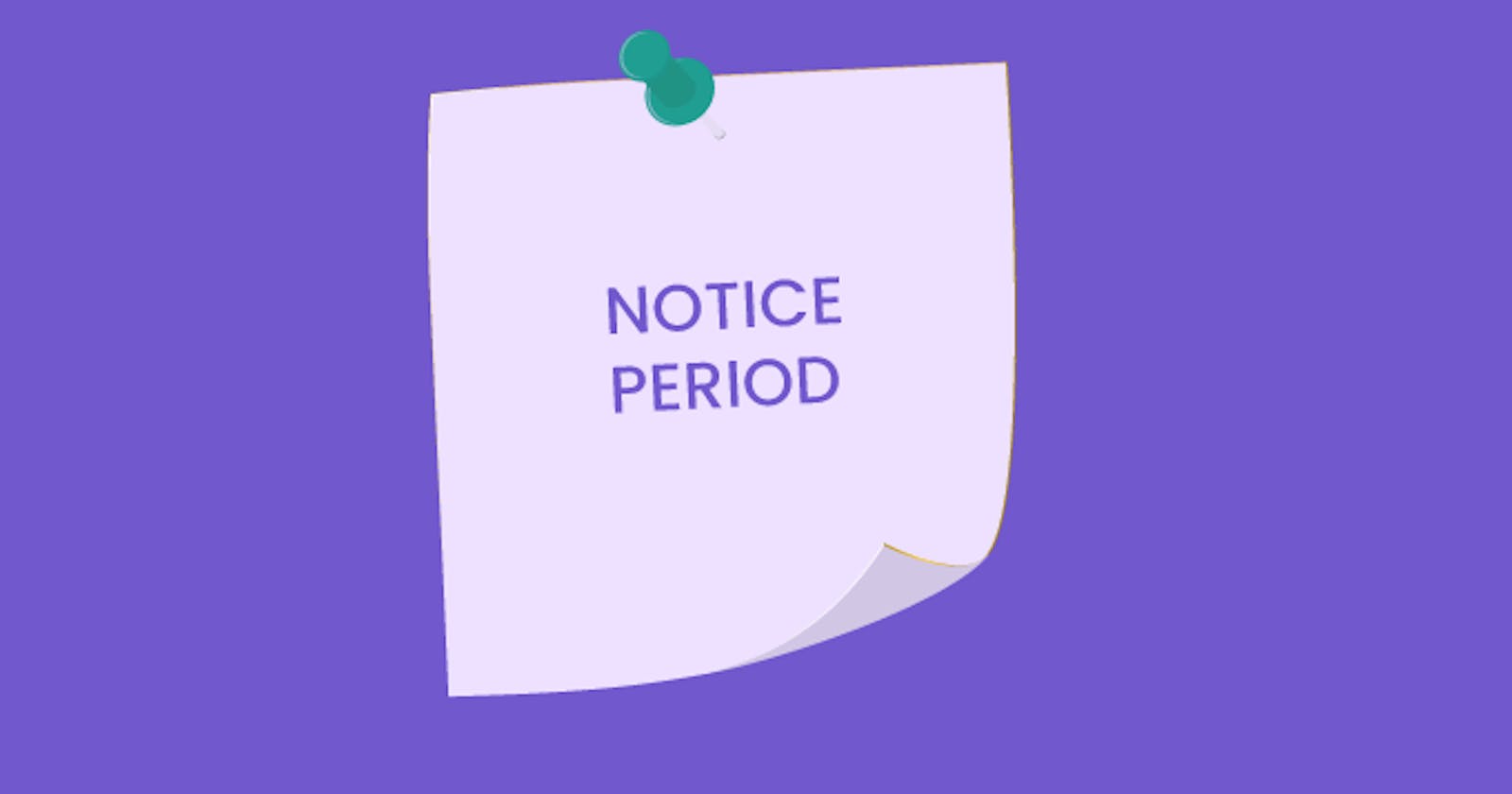Leaving a job is a momentous decision that demands careful consideration and meticulous planning, especially when it comes to navigating the intricacies of your notice period. Once you've made the decision to resign, the way you handle your notice period can significantly impact your professional relationships, the continuity of business operations, and your future career prospects. In this comprehensive guide, we'll explore the essential steps and strategies to ensure that your notice period is not just a countdown but a period of graceful transition and strategic planning.
Understanding the Dynamics of the Notice Period
Factors Influencing Notice Periods
Before delving into the planning process, it's crucial to understand the factors that influence notice periods. Your employment contract is a primary determinant, specifying the agreed-upon duration for the notice period. Additionally, industry standards and the specific requirements tied to your seniority and position can contribute to variations in notice periods. Recognizing these influences provides the foundation for a well-informed and strategic approach to planning.
Planning Your Exit Strategically
Craft a Professional Resignation Letter
Initiate the resignation process by crafting a well-articulated and professional resignation letter. Address it to your immediate supervisor or the HR department, clearly stating your decision to resign and the proposed last working day. This document serves as the official communication of your decision and sets the tone for the forthcoming transition.
Collaborate on Transition Plans
Open and transparent communication with your employer is paramount during the notice period. Schedule a meeting to discuss and collaborate on transition plans. Offer your assistance in training your replacement, document crucial processes, and participate in knowledge transfer sessions. This collaborative approach ensures that your departure does not create a void but rather facilitates a smooth handover.
Fulfilling Your Responsibilities
Throughout the notice period, it's essential to maintain a high level of professionalism by diligently fulfilling your job responsibilities. This not only contributes to the overall productivity of the team but also demonstrates your commitment to ensuring a seamless transition. Consistency in performance during this period reflects positively on your work ethic and leaves a lasting impression.
Calculating Notice Period
Refer to Contractual Agreements
The first step in calculating your resignation period is to refer to your employment contract. This document outlines the agreed-upon duration and terms of the notice period. Typically, notice periods range from two weeks to three months, depending on the terms specified in the contract.
Consider Legal Requirements
In addition to contractual agreements, it's essential to consider legal requirements governing notice periods. Labor laws in some regions dictate the minimum notice period, and adherence to these regulations is crucial to avoid legal complications. Understanding the legal framework ensures that your transition aligns with statutory requirements.
Engage in Negotiation if Needed
While employment contracts stipulate notice periods, certain circumstances may necessitate deviations from the standard duration. Engage in open and transparent dialogue with your employer to discuss any modifications or negotiate a mutually agreeable timeframe. Flexibility and understanding from both parties can lead to a revised notice period that accommodates the needs of both the employee and the employer.
The Benefits of Strategic Notice Period Planning
Maintaining Professional Relationships
A well-managed notice period is instrumental in maintaining positive professional relationships. Colleagues, supervisors, and subordinates appreciate a transparent and considerate approach to the transition, fostering goodwill and positive sentiments.
Ensuring a Smooth Transition
Collaborative planning and fulfillment of responsibilities contribute to a seamless transition. By actively participating in the knowledge transfer process and ensuring that your tasks are well-handled in your absence, you contribute to the overall stability of the team and the organization.
Preserving Your Reputation
A professional and well-executed notice period preserves your reputation in the professional sphere. Word of mouth, recommendations, and professional networks play a crucial role in future career prospects. A positive departure sets the stage for favorable interactions and potential opportunities down the line.
Related - Calculate your total work experience.
Conclusion
In conclusion, planning your notice period effectively after resigning is not just a procedural formality but a strategic undertaking that can shape the narrative of your departure. By understanding the influencing factors, strategically planning your exit, fulfilling responsibilities, and navigating the calculation process with professionalism, you set the foundation for a positive transition. The benefits extend beyond the immediate workplace, impacting your professional relationships and reputation in ways that can prove invaluable in your future career endeavors. Approach your notice period with intention, and transform it into a period of professional growth and constructive change.
